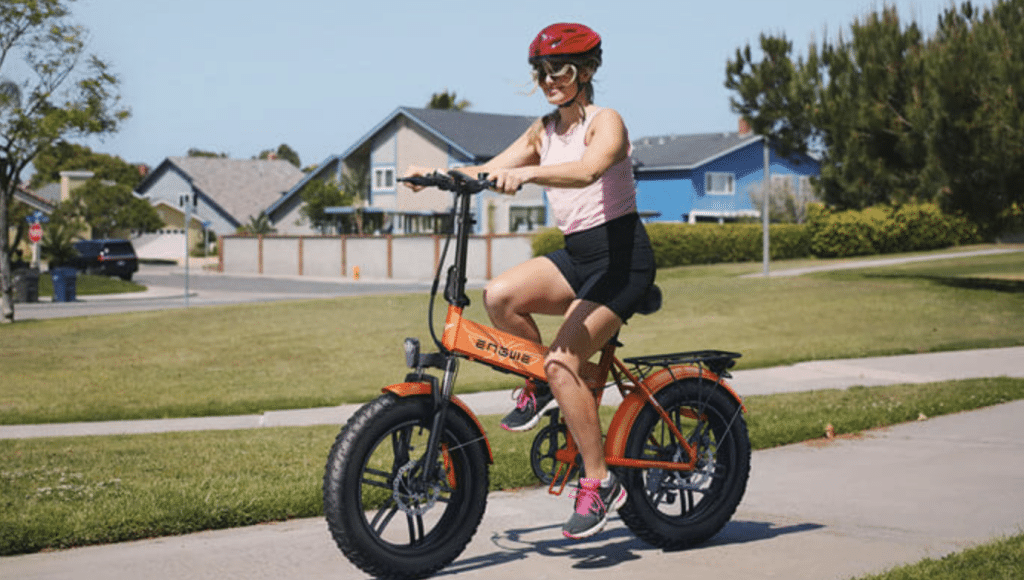Electric bikes have rapidly grown in popularity over the past couple of years and can now be seen in many rural areas and cities. With electric bikes, there is no longer a need to worry about expensive fuel prices or finding environmentally friendly methods of commuting. However, the main question posed is whether electric bikes are good for commuting.
In this article, we will highlight the advantages and challenges of electric commuting bikes to determine the overall experience.
The Rise of Electric Bikes
Electric bikes are also known as e-bikes, and they function by having a pedal-powered battery. Additionally, there is an electric motor mounted on each bike, which assists in pedaling or takes over completely, depending on the bike’s model, and gives the person a smooth ride.
Due to recent events such as the pandemic, more and more people are opting for e-bikes as their method of transportation. The reason for this is simple: e-bikes are eco-friendly, fast, and flexible while also being affordable in the long run.
Common Concerns and Challenges
Because of the benefits, e-bikes are slowly gaining popularity. However, some people have hesitations. This covers some concerns, some responses, and how to manage them:
- Distance From Charger
E-bikes typically offer somewhere between 20 and 60 miles on a single charge, which depends on the battery size, terrain, rider weight, and the assistance level selected. For some everyday riders, ensuring you charge at your workplace may be essential if using the bike for a round trip.
- Bare Bones Price
A decent e-bike runs anywhere between $800 and $3000. While the value may come across as ‘high’ compared to traditional bikes, it becomes more cost-effective in the long term than a car.
- Weather and Road Conditions
While riding strenuously in the rain or snow may not be ideal, e-bikes are built for straining conditions. Waterproof lights and gear can provide crucial support to the rider’s safety, and infrastructure is also slowly improving across every major city.
- Rider Protection
Due to the valves of e-bikes, they become a target for theft. Ensuring good quality locks, GPS trackers, or additional cover can ensure that your bike maintains its security and functionality. For example, you can choose the ENGWE MapFour N1 Air, which has a smart anti-theft function, or the ENGWE MapFour N1 Pro electric bicycle model.
Key Benefits of Commuting with an Electric Bike
- Save Time and Beat the Traffic
Having tried traversing a bicycle in a big city, you will note that getting stuck in traffic is quite a common occurrence. However, e-bikes eliminate the need to stress over fuel prices or slow down the bike due to traffic. Due to e-bikes, a smoother freeway riding experience is guaranteed, in addition to skipping traffic-congested bike lanes. Biking commuters report that they have managed to cut down their traveling time significantly, by up to fifty percent, due to switching to e-bikes.
Hence, one of the factors when asked “Are electric bikes suitable for commuting?” is that they save a lot of time.
- Cost-Effective Travel
The low running expenses offset the high initial cost of an e-bike. It only takes a few cents to charge the battery, and maintenance service is much more affordable compared to a car or motorcycle. Leave aside the fuel, insurance, and parking expenses; e-bikes can save hundreds, if not thousands, of dollars annually.
- Eco-Friendly Choice
Electric bikes have no emission output. If protecting the environment is a concern, then moving from a gas-powered car to an e-bike is one of the best decisions you could make. Making such a change is definitely worth it.
- Health Benefits
The motor does assist, but pedaling is still needed, especially when climbing hills or if riding with partial motor support. So, e-bikes allow you to engage in moderate physical activity without showing up somewhere soaked in sweat.
- Parking Made Easy
There are no more issues with searching for a parking slot or dealing with high parking prices. Being small and lightweight, e-bikes are easy to park just about anywhere. They are also now provided with bike racks and charging stations in many schools and offices.
Who Is Commuting by E-Bike Right for?
- City workers live within 20 miles of their office.
- Students are searching for affordable alternatives to public transit.
- Individuals are looking to minimize their carbon footprint.
- Those with mild to moderate disability who wish to remain physically active.
- Freelance and gig workers offering short tasks or errands that require immediate and flexible travel.
Selecting the Best Commuter E-Bikes
Focus on the following when shopping for an e-bike designed specifically for commuting:
- Comfortable saddle and riding posture
- Appropriate battery capacity
- Urban-grade, durable tires
- Built-in lights and reflectors
- Side fenders for wet conditions
- Auxiliary space for sneakers and laptops
E-bike brands that cater to these specifications include Rad Power Bikes, Aventon, and Engwe.
Final Remarks
Are Electric Bikes Good for Commuting? Yes, as they incorporate the best features of a bicycle, freedom and cost-efficiency, along with today’s modern technology. If you are looking for a cost-effective solution, aiming to be more eco-friendly, or just trying to get to your work faster, e-bikes will enhance your daily routine.
As with any mode of transport, it does depend on your circumstances. Consider factors such as distance, weather, and available infrastructure. But for millions of people around the globe, e-bikes serve a greater purpose than being a new gadget – they’re revolutionary.
